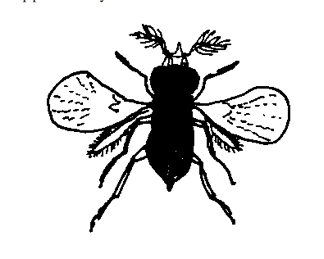Welcome to the Smith Forest Health Lab
Globalization ensures that invasive species will continue to arrive, establish, and cause significant disruption in our ecosystems, leading to major global change. My research aims to increase our ability to manage such species through improved understanding of community interactions that affect the natural enemies regulating their populations. I explore questions related to population mortality, shifts in community diversity, and novel associations in forest insect communities, with focus on understanding interactions between native and non-native natural enemies and their food web associates.
My research team conducts primary ecological studies proposed on insect-insect and insect-plant interactions here, work that elucidates key mechanisms driving changes in composition and diversity over time, as well as potential avenues for mitigating negative impacts in our forests. Species interactions underpin the invasion theories of enemy release and biotic resistance, which are a major thrust of my core research. There is a great need to understand such processes in invaded forests, and my research program represents one of the few academic groups in Canada actively working in this area of invasive species and biological control in forest ecosystems.
My research team conducts primary ecological studies proposed on insect-insect and insect-plant interactions here, work that elucidates key mechanisms driving changes in composition and diversity over time, as well as potential avenues for mitigating negative impacts in our forests. Species interactions underpin the invasion theories of enemy release and biotic resistance, which are a major thrust of my core research. There is a great need to understand such processes in invaded forests, and my research program represents one of the few academic groups in Canada actively working in this area of invasive species and biological control in forest ecosystems.
To Prospective Students...
My research lab supports a significant number of graduate level projects in basic forest ecology addressing insect population and community ecology as well as in applied forest pest management, biological control, and ecosystem restoration. Focus is on understanding interactions between invasive species and their natural enemies in forest ecosystems. My principal appointment is in the Faculty of Forestry at the University of Toronto, but I am also cross-appointed to the Departments of Ecology & Evolutionary Biology (EEB-St George) and Physical & Environmental Science (UT-Scarborough), the School of the Environment, and the Centre for Global Change Science (CGCS) at UoT.
I have a strong preference for PhD students, where four years of funding allows for development of more comprehensive thesis work and greater likelihood of success. Highly motivated, curious, creative, and knowledgeable students, especially those with independent funding, are strongly encouraged to contact me. Funding support is also available on a competitive basis through the Faculty of Forestry.
For students interested in applying to work at the Master level, I would suggest that they consider the Faculty's professional MFC program. Our research stream MScF provides only one year of guaranteed student funding that is inadequate for completing a research program normally taking two years. In contrast, the MFC program allows a student to focus on research while simultaneously achieving an accredited forestry degree (one leading to professional forester RPF designation across Canada). Research-oriented students in the MFC would complete an elective directed readings course under my supervision during the winter term, carry out a summer research project during their internship placement, and then write up their final Capstone project in my research area.
Undergraduate students who have an interest in my research area should consider working with me in a Directed Studies/Readings or Undergraduate Thesis course (FOR401/403 or EEB497/498/499). Each summer I also take on eligible NSERC summer student projects (apply directly through the Faculty of Forestry in February) or through the Centre for Global Change Science (CGCS) summer student internship program (apply directly in January). Both of these programs are highly competitive but can be very rewarding and help a student decide on future career options in this field. My lab also regularly brings students in to work on projects with graduate students in the lab through the University of Toronto's Work-Study program that runs fall, winter, and spring/summer each year (best is to contact one of my graduate students directly or myself if you are eligible).
I have a strong preference for PhD students, where four years of funding allows for development of more comprehensive thesis work and greater likelihood of success. Highly motivated, curious, creative, and knowledgeable students, especially those with independent funding, are strongly encouraged to contact me. Funding support is also available on a competitive basis through the Faculty of Forestry.
For students interested in applying to work at the Master level, I would suggest that they consider the Faculty's professional MFC program. Our research stream MScF provides only one year of guaranteed student funding that is inadequate for completing a research program normally taking two years. In contrast, the MFC program allows a student to focus on research while simultaneously achieving an accredited forestry degree (one leading to professional forester RPF designation across Canada). Research-oriented students in the MFC would complete an elective directed readings course under my supervision during the winter term, carry out a summer research project during their internship placement, and then write up their final Capstone project in my research area.
Undergraduate students who have an interest in my research area should consider working with me in a Directed Studies/Readings or Undergraduate Thesis course (FOR401/403 or EEB497/498/499). Each summer I also take on eligible NSERC summer student projects (apply directly through the Faculty of Forestry in February) or through the Centre for Global Change Science (CGCS) summer student internship program (apply directly in January). Both of these programs are highly competitive but can be very rewarding and help a student decide on future career options in this field. My lab also regularly brings students in to work on projects with graduate students in the lab through the University of Toronto's Work-Study program that runs fall, winter, and spring/summer each year (best is to contact one of my graduate students directly or myself if you are eligible).

